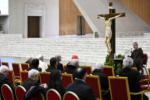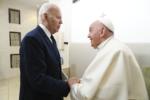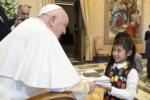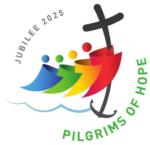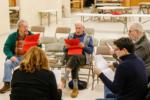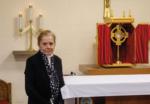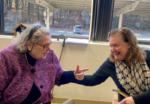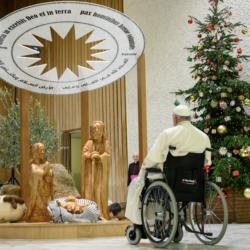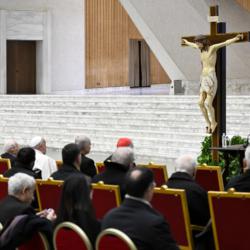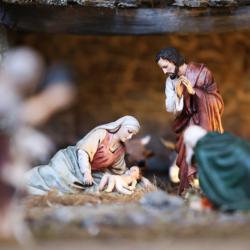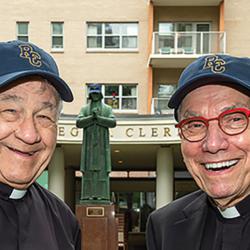Prominent bioethicist calls for public bioethics seeking to foster human flourishing
WASHINGTON (OSV News) -- Highlighting the intersection of bioethics and human rights, a prominent bioethicist argued in an Oct. 8 address that public bioethics should seek to foster human flourishing.
O. Carter Snead, a law professor of Law at the University of Notre Dame, made the comments in delivering the seventh annual Human Rights Lecture hosted by the Institute for Human Ecology at The Catholic University of America in Washington.
Snead, former director of Notre Dame's de Nicola Center for Ethics and Culture, is the author of "What It Means to Be Human: The Case for the Body in Public Bioethics."
In considering the bioethical questions surrounding a public policy proposal, Snead said, the question should be asked: "What is the vision of the human person and human flourishing that underwrites, undergirds and anchors the long policy issue?"
"It's a question in the sort of original sense of anthropology, not in the academic sense, but rather an account of what it means to be and flourish as a human being," he said.
That question, he said, "becomes the measuring stick" to evaluate a host of issues, from "abortion, assisted reproductive technologies and end of life decision-making, including euthanasia and assisted suicide," and prevents policy from remaining in the abstract rather than being evaluated by how it impacts human beings.
"Public bioethics is not mere intellectual inquiry," he said. "Public bioethics is the governance of science, medicine and biotechnology in the name of ethical goods."
Laying the foundation for the field of public bioethics, Snead pointed to efforts to prevent similar ethical abuses as occurred in 20th-century experiments in Tuskegee, Alabama, in which Black Americans were denied appropriate treatments for syphilis and in the Willowbrook State School, an institution supported by the state of New York for children with intellectual disabilities, in which residents were deliberately infected with hepatitis. Snead said protocols must be in place in law to prevent such abuses.
The similarity in those cases, he said, is that what the victims of the unethical treatments needed in each case "was someone to protect them."
Snead suggested that in debates over abortion, the question is often framed as "two strangers, a woman and an intruding stranger in her womb, fighting over scarce resources," and some propose "the solution as licensing one party to use violence against the other to repel the intruding stranger."
But pro-life advocates, he said, should seek to reframe the relationship "through the lens of the relationship of mother and child."
"Reimagine this as a crisis involving a mother and a child," he said, adding that if most people were witness to "a crisis involving a mother and a child, what we would do is not say, 'Who has license to use violence against the other?' We'd say, 'How do we help them? Let's drop what we're doing right now.' Any decent person in any decent society (would) stop what we're doing and go help the mother and the child because they're in distress."
Thinking in those terms, he said, "points us to much more humane solutions."
"That's how we know if we're succeeding or failing" in ethical public policy, Snead said. "Who are we leaving behind? How do the most vulnerable fare, and do these policies enlarge or shrink the boundaries of the human concern, of the human community and human concern? If we ask those questions earnestly and rigorously and continuously, then I think that our human rights discourse will be greatly improved."
- - - Kate Scanlon is a national reporter for OSV News covering Washington. Follow her on X (formerly Twitter) @kgscanlon.

